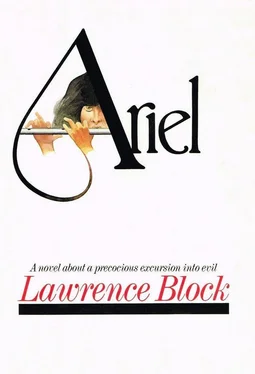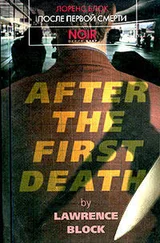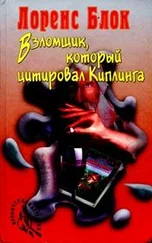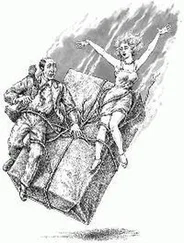I suppose having your spleen ruptured would cause all of those things. I suppose Graham’s spirits are low and his temper is bad. Mine certainly would be.
A car hit him and drove off without stopping. Some of the kids were saying that he ran into the street without looking, so it wasn’t the car’s fault, but it was certainly the car’s fault for not stopping.
I spooked Erskine. Telling him I had powers that caused Graham’s accident. He didn’t really believe me, but there was a minute there when he wasn’t absolutely sure.
Suppose Graham was hit by a maroon Buick with a black roof?
Except the other kids just said it was a dark car. Nobody got the license number or anything.
I wonder.
I wonder what would happen if I pretended to have powers. Erskine talked about killing Graham and Veronica, and now Graham’s in the hospital, and what would he think if something happened to Veronica?
This is crazy why am I thinking about this I should stop it right now—
Suppose I concentrated very hard on Veronica. Suppose I got up in the middle of the night and lit a candle under the portrait and concentrated very hard.
Nothing would happen.
Would it?
She gave her head a sudden shake, dismissing the train of thought. For a moment or two she sat with her eyes closed. Then she resumed writing.
I have to wait until I’m eighteen to find out who my real mother is. Erskine says maybe there’s a way before then if only he can figure it out. I don’t think he’ll be able to.
It does not seem so important anymore.
Here is what happens. I think about my mother or start to have an imaginary conversation with her. Then I look at Her.
I mean the portrait. Her.
I don’t know what to call her. I wish I knew her name. Sometimes she is me and sometimes she is my mother. Of course she is neither of us, not really. She could not have been my real mother because the portrait is too old.
But something happens when I look at her.
She closed the notebook, turned to look at the picture. It had an effect upon her which she did not begin to understand. But she did know it suited her to have the picture in her room. As if the woman was back where she belonged.
This must have been her room long ago, she decided. And she got up and walked to her window, drawing back the curtain and looking out at the street below. It had rained earlier, and a streetlamp cast a yellow glow over the wet pavement. She imagined that the woman in the portrait must have stood like this, looking out like this. Of course there would not have been cars then, just carriages pulled by horses. And the streetlamp would have been a gaslight.
She left the window, sat on her bed. At least she hadn’t gotten up in the middle of the night lately to burn any more candles. That incident had disturbed her for a while, until she finally decided it had been just one step removed from a dream, like walking in your sleep. Nothing to get all shook up about.
She turned, then, and raised her eyes to meet the glowing eyes in the portrait. She did not break her silent concentration until she heard David’s footsteps on the stairs....
David was restless. Roberta had gone out shopping, but the currents she’d stirred were still in motion.
She wanted to move. She’d come to his study immediately after dinner, just as he was preparing to settle in with pipe and brandy, and made her little announcement. This house, she explained, had been a mistake. They never should have bought it in the first place. It was a hostile environment, an unhealthy place physically and spiritually, and the only solution was to cut their losses and run. The Traphagens, anxious for a quick sale, had enabled them to buy at a good price. Now, even allowing for realtor’s commission and closing costs, they could very likely turn the house over at a small but tidy profit.
And move where, he’d asked.
The question didn’t seem to concern her. Back to Charleston Heights, if he liked, or any comparable suburban neighborhood. A year-round beach house on Isle of Palms might be nice if he didn’t mind the commuting time. Just so they got out of where they were — that was all she cared about.
That and proximity to Channing, he thought.
He couldn’t sit still. He got up, carried his brandy glass through the downstairs rooms of the house. There was, he decided, nothing wrong with this house and a great deal right with it. The three of them ought to be capable of being very happy in it. They’d been a family once, a happy and complete family. Roberta’s affair and Caleb’s birth had interfered, had changed things, but Caleb was gone now (think of God’s will, good and acceptable and perfect) and if only Roberta were herself again—
And there was the problem.
She was seeing Channing. She was behaving curiously, her voice edged with brittle anxiety, her face sharp and drawn. She barely spoke to Ariel, treating her like an unwelcome stranger. And through it all she maintained poor Caleb’s room as some sort of morbid shrine, dusting it almost daily, insisting that he and Ariel stay out of it. He’d almost suggested she hang a padlock on the door, only refraining out of fear that she’d take him at his word.
If they were to sell the house, he had thought of telling her, she’d have to let strangers into her precious Caleb’s room. You couldn’t very well expect a prospective house buyer to leave one of the upstairs rooms uninspected. And, when the house sold, she’d have to clear out the room. The new owners might not want to maintain the room as it was, giving it National Landmark status.
He finished his brandy, but instead of pouring another he set down his pipe and climbed the stairs. They creaked underfoot. Ought to be able to do something about that, he thought, but the sound didn’t really bother him. An old house ought to have its repertoire of sounds. They were like gray hairs on an old man’s head.
Ariel was in her room, sitting on her bed with her notebook open on her lap.
“I didn’t mean to disturb you,” he said. “I suppose you’ve got a lot of homework?”
She shook her head, closed her book. “I’m all finished, daddy,” she said. “I was just looking over what I wrote.”
“They keep you pretty busy at this school?”
“I don’t mind it.”
He nodded absently. “I just felt like talking,” he said. “Unless you’ve got something you wanted to do.”
“No.”
“Some program on television you wanted to watch.”
“No.”
He sat on the bed beside her, looked at the portrait he’d hung for her. It was disproportionately large for the room, but she seemed to like it and that was all that really mattered. What had Roberta been saying about the portrait? He hadn’t been paying much attention, only recalled that she didn’t like it and seemed to find it symbolic of everything that was suddenly wrong with the house.
“Well,” he said. “What’s new, honey?”
“Nothing much.”
“School coming okay?”
“Sure.”
He put an arm around her and she snuggled her head to his shoulder. He felt a rush of warmth to his chest not unlike the sensation he obtained from swallowing a generous measure of brandy. His voice suddenly husky, he said, “Then everything’s okay with you?”
“Everything’s fine.”
“You like it here, don’t you?”
“Sure.”
“Better than our other house?”
“Tons better. I love this house.”
“How about your school?”
“It’s better.”
“Better teachers?”
“They’re about the same. The kids are better, though.”
“And you’ve got a best friend.”
“Erskine.”
“I haven’t really met him yet.”
“Well, he’s shy around grownups.”
Читать дальше







